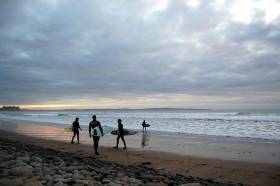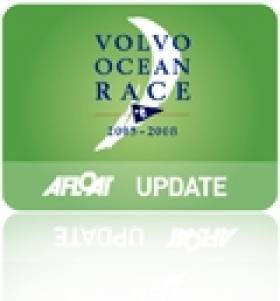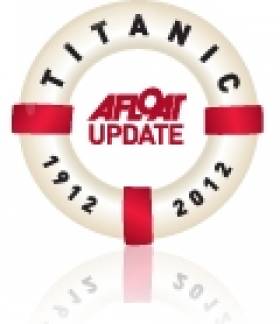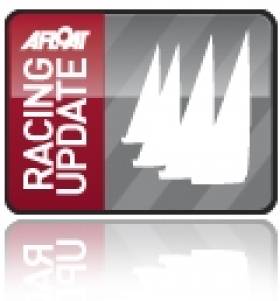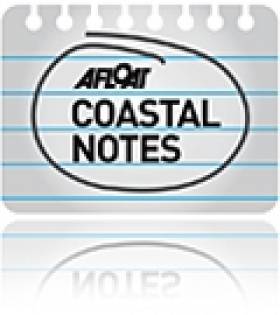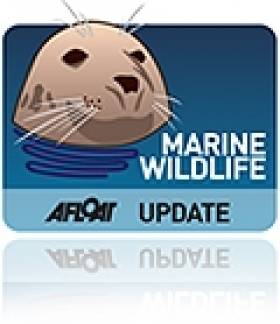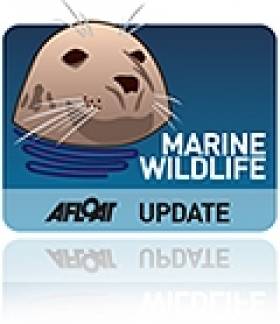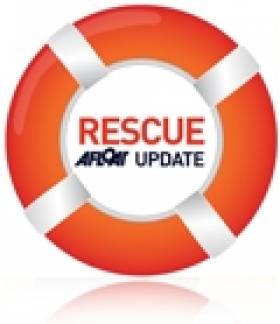Displaying items by tag: anniversary
Naval Service Readies for 75th Anniversary Celebrations This Week
The Naval Service is currently engaged in Fleet Exercise 75 (FLEX75) in advance of celebrating the 75th anniversary of its founding tomorrow, Wednesday 1 September.
To ensure they remain fully prepared to respond to maritime security-related incidents or seaborne threats, Ireland’s navy ships and personnel conduct regular scenario-based training exercises such as FLEX75.
This week’s manoeuvres will see the fleet converge on the capital, first with a Guard of Honour for Defence Minister Simon Coveney in Dun Laoghaire Harbour tomorrow morning at 9.15am.
 On the bridge with a Dublin-bound Naval Service crew taking part in Fleet Exercise 75 | Credit: Irish Naval Service/Facebook
On the bridge with a Dublin-bound Naval Service crew taking part in Fleet Exercise 75 | Credit: Irish Naval Service/Facebook
Following this, at 10am, the LÉ Samuel Beckett will depart Dun Laoghaire for the River Liffey in Dublin under a gun salute from the Army’s 2 Brigade Artillery Regiment.
On arrival in the city (ETA 11.40am), the vessel will take a salute from sister ships of the P60 class at Sir John Rogerson’s Quay, where there will also be an Air Corps helicopter fly-past.
All are invited to “meet the fleet” as part of the celebrations and in line with national COVID guidelines. There will also be a recruitment stand to answer any questions about signing up for a new career in the Defence Forces.
Follow the Irish Naval Service social media channels and hashtag #IrishNavy75 for more throughout the week, including updated on events in Cork Harbour at the weekend.
Fifty Years Of Irish Surfing Celebrated In Rossnowlagh Next Weekend
#Surfing - Fifty years of Irish surfing will be celebrated in Rossnowlagh this month, as the Donegal Democrat reports.
A gala dinner during the Rossnowlagh Intercounties next weekend (15-16 October) will mark five decades since the formation of what was then the Surf Club of Ireland by Kevin Cavey, who was influenced by images of surfing in a Reader’s Digest magazine.
Cavey himself inspired the legendary Britton clan in Rossnowlagh, and the family’s Sandhouse Hotel soon became a focal point for Irish wave-riding.
Fast-forward to today and Ireland, and the North West in particular, is among the world’s stop surfing destinations, producing world-class talent such as women’s surf pioneer Easkey Britton.
But the Irish Surfing Association’s golden jubilee dinner at the Sandhouse next Saturday 15 October is an opportunity to look back fondly at memories and happenings from Irish surfing’s earliest days. Irish Surfing has more HERE.
VOR Women Smash Racing Records Off Lanzarote
#VOR - Team SCA have been posting some record-breaking times in their training runs off Lanzarote as of late, as the official Volvo Ocean Race website reports.
Most recently the all-female team set a new record from Puerto Calero to La Palma Marina last weekend. This achievement followed their victory in the Round Lanzarote Race last month - their first competitive event sailing together as a team.
"It was a fairly big milestone in our preparations and we were lucky to have great conditions, which enabled us to get the race record," said Vendee Glone veteran Sam Davies, who captains a squad of world-class racing women eager to jump into their next challenge - the Rolex Fastnet Race in August.
Meanwhile, the Volvo Ocean Race is currently celebrating its 40th anniversary, and put together the short film above "about the spirit and the people behind sport's ultimate test of character".
The heat is already on for the return of the race in October next year, with the new design VOR 65 coming together nicely.
In the latest video update following the new yacht's construction, VOR's Rick Deppe visits the Gottifredi Maffioli factory in Italy where the ropes are being made:
The 13 Deadliest Shipwrecks in History
#TITANIC - Irreverent tech website Gizmodo has marked the 100th annversary of the sinking of the Titanic with a list of the 13 deadliest shipwrecks in history.
The list runs the gamut from well over a century ago, in the early days of passenger shipping - see the SS Sultana, a tragedy overshadowed by the assassination of Abraham Lincoln and the end of the American Civl War - to more recent events.
Included are such as sad tales as that of the Empress of Ireland, the worst disaster in Canadian maritime history in which more than 1,000 died, and much closer to home the Lusitania, which went down off Kinsale in May 1915 after a torpedo attack.
But the worst was arguably suffered by the passengers of the steamship SS Kiangya - which blew up 50 miles north of Shanghai in December 1948, taking as many as 3,920 lives - and the horror that befell the MV Doña Paz in the Philippines in December 1987, where estimates put the death toll at an unbelievable 4,000.
Gizmodo has more on the story HERE.
Ailsa Craig Race Celebrates 50th Anniversary
#RACING UPDATE - This summer the Royal Ulster Yacht Club will stage the 50th anniversary edition of the Ailsa Craig Race, one of the classics of the Northern Ireland offshore yacht racing calendar.
Many of the competitors from the inaugural race in 1962 - several of whom are now in their 80s - are expected to compete in the overnight challenge, which takes the fleet from Bangor to the rock at the mouth of the Clyde in Scotland.
The 2012 Ailsa Craig Race, sponsored by Hamilton Shipping, takes place on 15 June.
#COASTAL NOTES - Northern Ireland's only aquarium could be privatised, according to the News Letter.
Ards Borough Council is reportedly considering its options for the future of Exploris, the aquarium and seal sanctuary in Portaferry that celebrates its 25th anniversary this year.
Plans were made four years ago to transfer ownership to English aquarium group Blue Reef Leisure, but the deal fell through when that firm was aquired by Spain's Aspro.
Now the council has announced it is calling for proposals for private investment in the Exploris facility - which costs around £500,000 (€600,000) a year to run - following "renewed interest from the public sector".
The move aims to "establish a clear direction for the future of Exploris", which houses one of Northern Ireland's top 10 visitor attractions in its popular seal sanctuary.
The News Letter has more on the story HERE.
Titanic Artifacts a Snap - at $189 Million!
#TITANIC - The Titanic is for sale - if you have a spare $189 million to spend, according to the Los Angeles Times.
The single-lot auction, which will take place in April on the 100th anniversary of the Belfast-built ocean liner's tragic demise, includes more than 5,000 items salvaged from the wreck, from gold coins and clothing to parts of the ship's hull itself.
But casual buyers need not apply, as aside from the multi-million-dollar outlay, the prospective purchases must also take on stewardship over the collection, preserving it for future generations and exhibiting parts of it to the public.
Arlan Ettinger, president of Guernsey's Auctioneers & Brokers in New York, commented: "It's like getting a puppy. When you bring it home, you don't think of all the responsibilities and the time and investment that will be required... But it takes great care."
Images of the items up for auction are available HERE.
Celebrating a 'New Chapter' in Ireland's Natural History
#MARINE WILDLIFE - "Until a mere couple of decades ago, virtually all we knew of the variety and distribution of the whales and dolphins around Ireland was judged from the catches of a short-lived Norwegian whaling station in north Co Mayo in the early 20th century and years of random recording..."
So writes Michael Viney in last Saturday's Irish Times, as he welcomes the 21th anniversary of the founding of the Irish Whale and Dolphin Group (IWDG).
"It can celebrate magnificent achievements," he writes, "both in turning so many Irish eyes seaward and in launching a new chapter in the island’s natural history."
As previously reported on Afloat.ie, the IWDG will be hosting its 21st anniversary banquet at the Grand Hotel in Malahide this Saturday.
Over the past two decades, it has grown from its core work of creating a proper record of stranded cetaceans, to cataloguing the diverse array of living whales and dolphins that populate Ireland's waters today, adding "new knowledge" of "international interest" every year.
The Irish Times has more on the story HERE.
IWDG 21st Anniversary Banquet in November
The Irish Whale and Dolphin Group (IWDG) will celebrate its 21st anniversary at a special banquet on Saturday 19 November at the Grand Hotel in Malahide, Co Dublin.
The evening will consist of a three-course meal and entertainment including music and dancing, a film show of IWDG activities over the years, an international guest speaker (to be announced) exploring the impact of the IWDG on cetacean recording.
The marine wildlife conservation group's AGM will take place earlier in the day at the Grand Hotel at 2pm.
Tickets for the banquet are €60 - book early as places are limited to 120. To book contact Shay Fennelly at [email protected] or 087 642 8902.
Overnight accommodation is also available at the Grand Hotel with special rates for banquet guests of €90 for a single room and €110 for a double/twin room. To book contact Hilary Fogarty, quoting IWDG as the reference, at 01 845 0000, 01 816 8281 or [email protected].
25 Years of Saving Lives in Ballybunion
Ballybunion's Sea and Cliff Rescue Service celebrated its 25th anniversary with an open day at its headquarters last weekend, The Kerryman reports.
The day also saw the unveiling of a special plaque from Water Safety Ireland recognising the rescuers' service to the locality.
The volunteer rescue unit was founded in 1986 by just three men: Mike Flahive, Frank O'Connor and TJ McCarron.
"It's the support of the public that's our bottom line and we're delighted with the continuing generosity of the people of North Kerry and West Limerick," said John Walsh, a member of the unit for 24 years.
"Without it we simply wouldn't be here today."
The Kerryman has more on the story HERE.


























